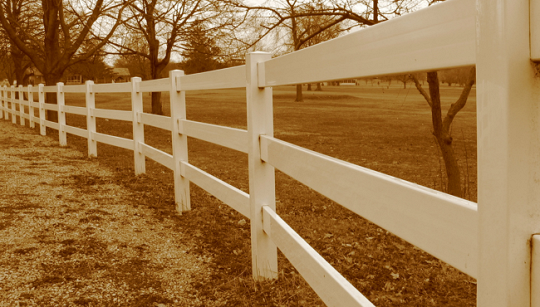Drawing the Line: Addressing Boundary Disputes Professionally

Boundary disputes are a common issue that can arise between neighbours and can often be complex and emotionally charged matters. In this article, we will outline the steps you can take to handle boundary disputes effectively, ensuring that your rights are protected while maintaining amicable relationships with your neighbours.
Understanding Boundary Disputes
Boundary disputes typically occur when there is a disagreement between property owners regarding the exact line that separates their properties. If you live in England or Wales, there’s usually no record of the exact boundary between two properties, or, for example, who owns the hedge, wall, tree, or fence between 2 properties. You can get an idea of where the boundaries for your property are by looking at its title plan, but unfortunately most title plans don’t show exact boundaries. This can, therefore, result in disputes.
Disputes commonly arise from a variety of issues, such as discrepancies in property deeds, changes in the landscape, or simply different interpretations of boundary markers. The key to resolving these disputes lies in a clear understanding of the law and a professional approach to negotiation and resolution.
Legal Framework in the UK
In the UK, boundary disputes are governed by a combination of land law principles and specific statutes. The Land Registration Act 2002 and the Law of Property Act 1925 are particularly relevant. Under these laws, property boundaries are generally defined by the title deeds registered with the Land Registry. However, physical features on the ground, historical usage, and even verbal agreements can sometimes complicate matters. In many cases, an informal discussion with your neighbour can resolve the matter. In some cases, a boundary agreement can be drawn up in order to formally record the boundary between 2 properties and determine who’s responsible for maintaining a hedge, wall, tree or fence between 2 properties.
Steps to Address Boundary Disputes
Gather Evidence
The first step in addressing a boundary dispute is to gather all relevant evidence. This includes title deeds, Land Registry documents, old maps, photographs, and any other documents that can help clarify the boundary. It is also useful to have a detailed survey of the property conducted by a qualified surveyor.
Seek Professional Advice
Consulting with a solicitor who specialises in property law is crucial. At RDC Solicitors, we provide expert advice on interpreting title deeds and other legal documents, as well as the implications of historical evidence and physical markers. A solicitor can help you understand your legal position and the strength of your case.
Negotiation or Mediation
Before resorting to legal action, it is often beneficial to attempt to resolve the dispute amicably through negotiation. This can involve direct discussions with your neighbour or mediation with the help of a neutral third party. Effective communication and a willingness to compromise can often lead to a mutually satisfactory solution without the need for litigation. If direct negotiation fails, mediation can be a useful next step. Mediation involves a neutral third party who facilitates discussions between the disputing parties to help them reach an agreement. It is less formal and less costly than going to court, and it can preserve a better relationship between neighbours.
Litigation
If other methods fail, litigation may be necessary. Taking the dispute to court should always be a last resort due to the costs involved and the potential for a prolonged and contentious process. At RDC Solicitors, we represent clients in boundary disputes, ensuring that their cases are presented effectively and professionally.
Maintaining Professionalism
Handling boundary disputes professionally involves more than just understanding the law. It requires maintaining a calm and respectful demeanour throughout the process. To ensure you approach your boundary dispute professionally, there are several things you can do.
Document Everything
Keep a detailed record of all communications and actions taken in relation to the dispute. This documentation can be invaluable if the dispute escalates to legal proceedings.
Stay Objective
Try to remain objective and focus on the facts rather than letting emotions drive your decisions. This can help in negotiations and in presenting your case clearly. Understanding your neighbour’s perspective can often lead to more effective negotiations and resolutions. Sometimes, disputes arise from misunderstandings that can be easily resolved through clear communication.
Know When to Get Help
Don't hesitate to seek professional assistance early in the process. Solicitors, surveyors, and mediators can provide the expertise and support needed to navigate complex boundary issues.
At RDC Solicitors, we understand the complexities involved in these disputes and the importance of addressing them professionally and legally. Boundary disputes can be challenging, but with the right approach, they can be resolved effectively and amicably. We are committed to helping our clients navigate these disputes with professionalism and expertise and will strive to resolve your issues with pragmatic, no-nonsense advice. If you are facing a boundary dispute, contact RDC Solicitors for a consultation and let us help you draw the line with confidence on Bradford 01274 735 511, Bingley 01274 723 858 or Ilkley 01943 601173.


